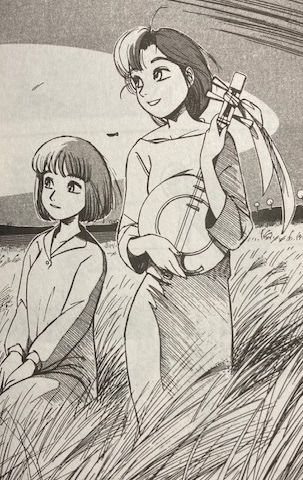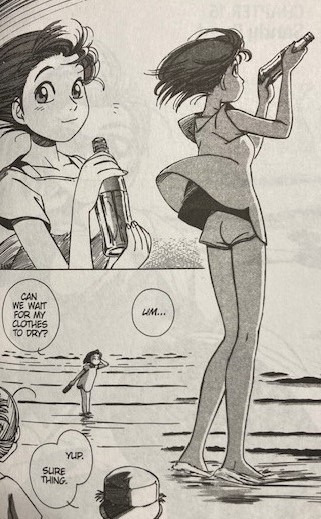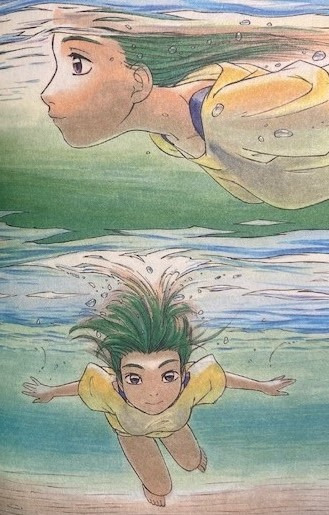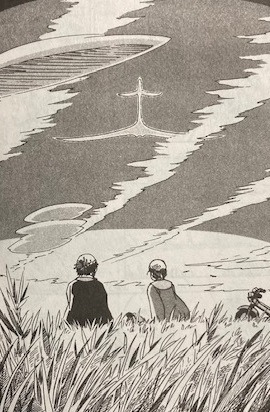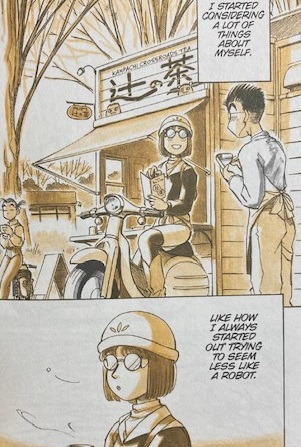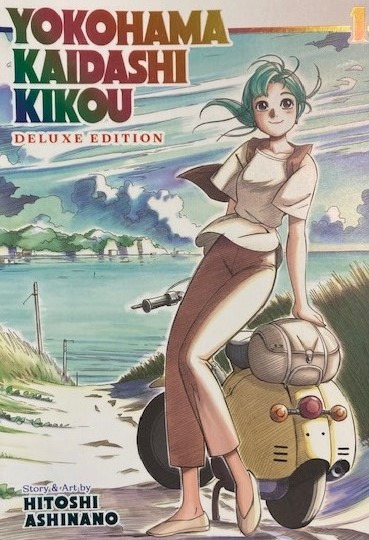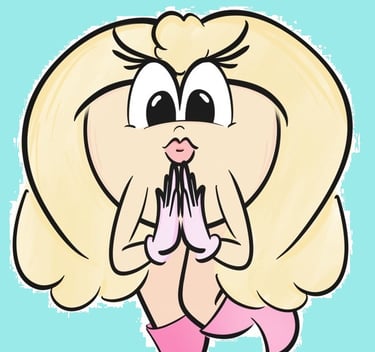As manga continues its Western domination, slowly displacing the tried-and-true superhero fare that once littered the newsstands, it’s only natural that companies would begin mining the industry for further material. Whether Dragon Ball or Naruto or Maison Ikkoku, the prominent titles and sleeper hits alike have long been secured by the biggest publishers, leaving only the most obscure and niche licenses behind for the smaller presses to pick through. Yokohama Kaidashi Kikou is one of these overlooked masterpieces finally receiving a Western release.
Indeed, it’s little wonder why Yokohama took so long to migrate over; it’s the extreme antithesis to the flamboyant, drama-heavy stories that love dominating the Japanese charts. It’s even somewhat contrary to the more pastoral, easy-going works of Hayao Miyazaki, the mastermind behind My Neighbor Totoro and Kiki’s Delivery Service. Yokohama is nothing like these because it’s about the mundanity of life...if anything at all. At least, so it first appears.
The backstory, although just vaguely explained, offers the only hint of epic excitement. Set after an ecological catastrophe in an indeterminate-future Japan, the series follows Alpha, a cute android who runs a quaint café in lieu of her absent owner. Despite her composition, she's very human—so much so, in fact, she’d be indistinguishable from her fleshy contemporaries if not for her head of blue-green hair. As readers follow Alpha’s decidedly low-key, even lonely existence, they slowly learn that her sunny surroundings hide a tragic fact. Mankind is dwindling. The world is flooding. Technological progress is scattered, even dying. The future, simply, looks increasingly dim. But instead of facing looters and violence and aimless strife, Alpha awakens each morning to a world of tranquility and resigned acceptance. All anyone can do now, seemingly, is wait…serving a sort of quiet penance as nature slowly retakes the globe, reclaiming Man’s every marvel, leaf by leaf, sea by sea.
It’s a sometimes somber, almost disquieting work, but the backdrop is really just the context—not the emphasis—behind a cast of characters who are perpetually kind, wise, and—above all—hopeful. Whether doom is ultimately inevitable, it doesn’t really matter. Life still persists, chores must be done, children remain to be reared and raised; this is among the finest slice-of-life journeys one will ever absorb.
And if the adorably endearing Alpha is not enough to soften the hardest skeptic’s heart, Hitoshi Ashinano’s phenomenal artwork will provide that final nudge. His characters are expressive, fluid, real…but so are the wonderful landscapes he unfurls across that yawning white. Few artists can make such inky, scratchy swipes come alive without the help of color, but his craft transcends the medium. People will mentally--instinctively-- imbue their own hues to the pages. (Incidentally, a selection of pages are fully colored, and they’re beautiful.)
Yokohama is not for those wanting to raise their blood pressure with violent, fist-bumping excitement. This is a story for those who want to relax, for those who want to ponder the nuances of life—no matter the time, people, or place. It’s designed to make one consider his existence, his place in the world, and, in an indirect sense, the purpose of his species. Armed with fantastic art, timeless characters, and a capable translation, Yokohama Kaidashi Kikou is a little godsend of a gem.
May people find it and read it…reflect and genuflect.--D
